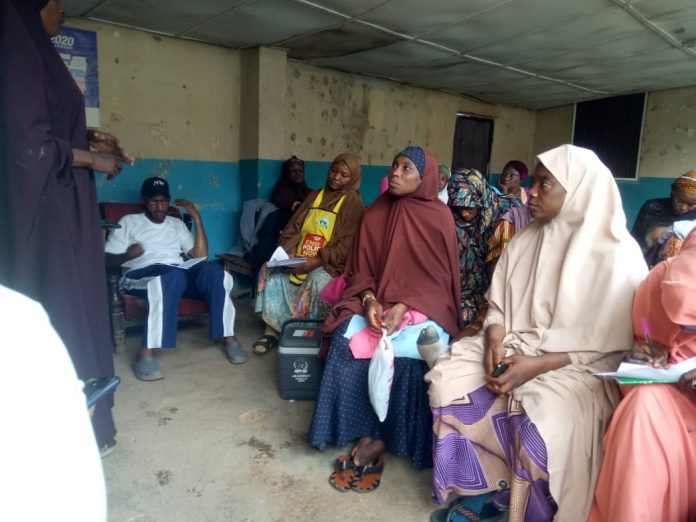A Civil Society Organization (CSO) called White Ribbon Alliance Nigeria (WRAN) has urged households in Bauchi State to take advantage of the opportunities provided by the Federal Government Self-Care initiative, which is designed to bring basic healthcare services into the comfort of their homes, in an effort to further increase access to basic health care for residents of Bauchi State, particularly those living in hard to reach communities.
The request was made in an advocacy brief that was provided to our correspondent in Bauchi on November 29, 2022, in advance of WRAN’s withdrawal from operations as one of the main proponents of the state of Bauchi’s self-care initiative.
The executive summary states that self-care is the capacity of individuals, families, and
In an effort to further make basic health care accessible to citizens of Bauchi State, particularly those living in hard to reach communities, a Civil Society Organization (CSO) known as White Ribbon Alliance Nigeria (WRAN), has called on households in Bauchi State to avail themselves the opportunities provided by the Federal Government Self-Care initiative, designed to bring basic healthcare services in the comfort of their homes.
The call was contained in an advocacy brief made available to our correspondent in Bauchi on Tuesday 29th November, 2022, preparatory to the exit of WRAN activity, as major promoters of self-care initiative in Bauchi State.
According to the brief, Self-Care is the ability of individuals, families and communities to promote their well-being, prevent disease, maintain health and cope with illness and disability with or without the support of a healthcare provider.
The brief also indicates that the initiative is anchored on simple methods in three major areas of caring for one’s self that includes: Self – Management, Self – Testing and Self – Awareness, pointing out that, “these care options put healthcare in the hands of the people who need it the most”.
The advocacy brief also stressed that, “For women, the ability to be equipped with the information and tools to manage their sexual and reproductive health needs in the comfort of their home is a key means of promoting her health and family’s wellbeing”.
The brief further stated that in hard-to-reach communities where access to health facilities and health information is scare, the use of self-care, can determine their current health status even for HIV and Malaria
In highlighting what the Self – Care products entails , the advocacy brief also itemized the self administered services to include: contraception; targeting women that have been prescribed to take injectable contraceptives on having the choice of administering such services without necessarily going to hospital every three months. The Self-Care products that take care of that component of health includes Pre and Post pregnancy kit, Ovulation prediction kit (OPK), Male/Female Condoms, Home-based Pregnancy test kit, Family planning and other methods.
With regards to instant health status check; one can also conduct Malaria, and HIV preliminary self-testing at home too.
According to WRAN, “These Self-care products are now available in pharmacies and PHCs in all the 20 LGAs of Bauchi State”.
While advocating for the utilization of the Self-care kits, WRAN also cautioned that, “Self-Care system is an informed approach to using home remedies as part of a health plan as prescribed by a qualified healthcare provider – this is entirely different from taking self-prescribed medications, which is usually done without the consulting a qualified healthcare provider. Self -prescription is very risky and can lead to serious medical complications and even death”.
It could be recalled that in 2022, the Federal Ministry of Health in collaboration with other partners developed the National Self-care Guidelines on Self-Care for Sexual Reproductive and maternal health in 2020, which was followed by its launch in 2022. The guideline includes guidance for self- care interventions, and its sub-National level adoption in Nigeria.

